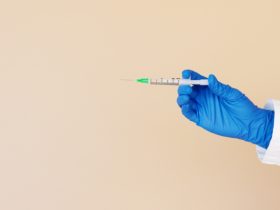Week after week, the number of new coronavirus cases in the Czech Republic continues to grow. On Wednesday, tests verified 151 cases, up from 105 a week ago. The reproductive number, which reflects the average number of infections caused by a single positive test, is likewise on the rise, now standing at 1.2. The last time it was higher was at the end of February. On Wednesday, it climbed above the number of one for the sixth day in a row, indicating an acceleration in the spread of the disease.
According to figures on the health ministry’s website, the number of people infected in the past seven days increased to 7.6 per 100,000 people today, from 7.1 earlier. The administration will address the situation in an extraordinary meeting this evening, most likely tightening the conditions for returning from vacation.
Since the outbreak began last year, 1,667,435 people have been diagnosed with the coronavirus, with almost 98 percent of them being cured and 30,304 people dying from the proven covid-19 disease. There are 59 people in hospitals undergoing chemotherapy currently, compared to roughly 20 a week ago. On Wednesday, there were 11 patients in critical condition, the same as a week ago.
For several days, Prague has been the worst off in terms of the so-called incidence rate or the number of confirmed cases per 100,000 residents over the previous seven days. The infection rate has jumped to 25 infections per 100,000 people today, up from 21 the day before. According to figures from the health ministry, Prague added 69 confirmed cases on Wednesday, accounting for less than half of the total daily increase.
Due to the spread of the Covid-19 outbreak, the administration will convene an emergency meeting today. People who have only received one dosage of the vaccination should be required to provide a negative test to verify that they are free of the virus, according to Health Minister Adam Vojtěch (ANO). Employers may be forced to make their employees take the test when they return from vacation.
The so-called European Covid Passport, which aims to make travel within the EU more convenient today. It will be used to prove that people have been vaccinated or that they have tested negative for the coronavirus. All EU-27 nations must accept it, but they will be free to impose limitations on its holders, such as quarantines, if the number of infections begins to grow again.










Your source for Connecticut breaking news, UConn sports, business, entertainment, weather and traffic https://connecticutpost.us/